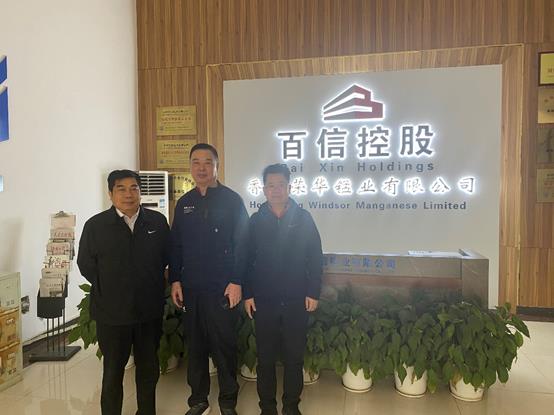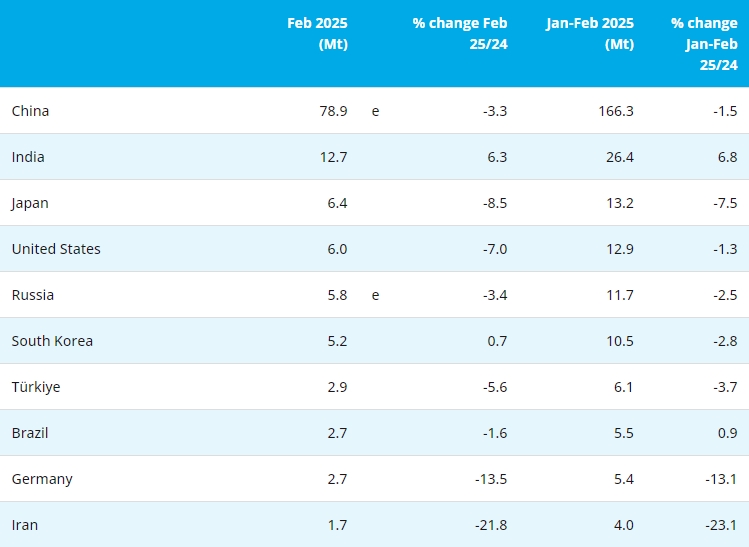【Ferro-alloys.com】:The Western Australian government on Wednesday announced the phasing-out of coal-fired power generation, with all of the state-owned coal-fired power stations to retire by 2030.
The state government said that the continued uptake of rooftop solar and renewable energy has forced changes to the energy system, to ensure a secure electricity supply and guard against higher power bills.
Collie power station will close in late-2027 and Muja D in late-2029. As previously announced, Muja C's Unit 5 will close later this year and Unit 6 in 2024.
WA's electricity system is being increasingly challenged by the overwhelming uptake of rooftop solar. These pressures force energy provider Synergy to offload excess power generated during the day at a loss, and add additional maintenance and generation costs, which are ultimately borne by taxpayers.
To address this, the state's energy generation system will embark on a sensible, managed transition to a greater use of renewables, while ensuring electricity reliability and affordability continues to be paramount.
“The amount of rooftop solar coming online currently in Western Australia is roughly the equivalent of adding a new coal-fired generation unit every year,” said Energy Minister Bill Johnston.
“This is putting unprecedented pressure on the system and we must act to keep costs as low as possible, while transitioning to higher levels of renewables and storage.”
An estimated $3.8-billion will be invested in new green power infrastructure in the South West Interconnected System (SWIS), including wind generation and storage, to ensure continued supply stability and affordability.
"Our new investment in the SWIS represents an extraordinary investment in the future of our electricity system, including a massive reduction of Synergy's carbon emissions,” said Johnston.
"We will be working closely with impacted businesses, workers and communities to ensure we create new jobs and training opportunities to future-proof Collie for the coming decades."
Without the decision to retire the power stations, over the next decade Western Australia would either see major electricity price hikes or taxpayers would be forced to fund billions of dollars of subsidies to keep the system running, the government warned.
Under current settings, it is estimated household electricity costs would rise from their current average rate of about A$1 800 per year to more than A$3 000 per year.
Alternatively, Western Australian taxpayers would be required to subsidise Synergy to the tune of almost A$3-billion to 2029/30 to cover the ongoing losses of the energy provider, taking funding away from key government projects and services.
The government said that the investment in new renewable power infrastructure is expected to pay for itself by 2030/31 relative to the increasing electricity subsidies payable under the status quo.
The transition to higher levels of renewables and storage will happen in a sensible, orderly, consultative manner to ensure workers, industry and communities are strongly supported. Household electricity prices will remain affordable, with the government continuing to cap prices at inflation in line with its 2021 election commitment.
A new A$547.4-million Collie Transition Package will support the town of Collie over the next decade, to grow new industries and local jobs, bringing the state government's investment in the area to over $662-million.
The Collie Transition Package includes a new A$200-million Collie Industrial Transition Fund, expanded skills and training opportunities for workers and additional job-creating investment.
Synergy and Water Corporation are currently undertaking analysis to determine the feasibility of a pumped hydro project forming part of its storage needs. Synergy is also investigating the feasibility of using hydrogen to power its existing gas generation assets.
As part of these changes, the state government has also committed to not commissioning any new natural gas-fired power stations on the SWIS after 2030; however, the government noted that it remained strongly committed to its domestic gas reservation policy, which reserves 15% of natural gas, which would otherwise be exported, for the Western Australian market.
“For more than a century Collie has literally powered the state, and my government is absolutely committed to ensuring the town has a strong economic and jobs future. The reality is our current electricity system is becoming increasingly unsustainable due to the uptake of rooftop solar and growing demand for renewable options for generation,” said Premier Mark McGowan.
“Maintaining the status quo would see average yearly household power bills increase by over A$1 200 within eight years. Alternatively, taxpayers would have to spend billions subsidising the system, taking funding away from key government projects and services.
“This investment makes economic sense, as it pays for itself by 2030/31, instead of continuing to pay increasing subsidies under the status quo.
“Western Australia will implement a sensible, managed transition to greater use of renewables for electricity generation, while ensuring we maintain electricity reliability as a priority.
“My government is providing a new half-a-billion-dollar package to support Collie through this transition - focusing on industrial opportunities to create new blue-collar jobs around the town. This brings our investment in Collie's transition to over A$662-million.
“The transition will be implemented in a sensible, consultative manner, with long lead times to ensure workers and the wider community can plan for the future.
“We will also embark on one of the biggest infrastructure projects ever seen in Western Australia, a projected A$3.8-billion investment in renewable generation and storage to create thousands of additional jobs in regional Western Australia, many in Collie and surrounding areas.
“These initiatives will create new local industrial and blue-collar jobs to make sure the local workforce has the opportunity to transition into new, high-quality roles in the Collie area."
By phasing out coal-fired power, Synergy's carbon emissions will be reduced by 80% by 2030, including a 40% emissions reduction on the SWIS, compared to 2020/21 levels.
It is expected that additional industry demand for renewable energy will result in even greater emissions reductions on the SWIS.
McGowan said that the government is committed to working with coal providers to ensure security of supply through to 2030, and an orderly transition for industry, including entities that use coal in their technical processes.
- [Editor:Alakay]



 Save
Save Print
Print Daily News
Daily News Research
Research Magazine
Magazine Company Database
Company Database Customized Database
Customized Database Conferences
Conferences Advertisement
Advertisement Trade
Trade














 Online inquiry
Online inquiry Contact
Contact

Tell Us What You Think